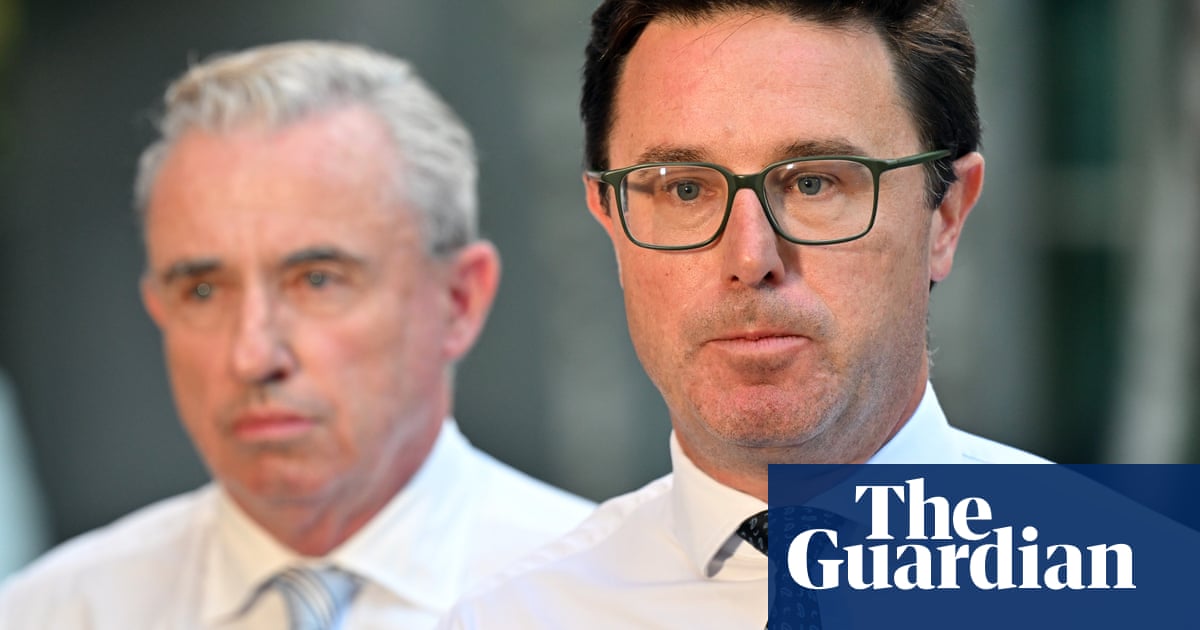The Nationals will reconvene as early as Wednesday to debate a revised deal to reunite theCoalitionafter last week’s brief but damaging split.
David Littleproud will ask colleagues to accept some tweaks to the country party’s policy demands which, if endorsed, would clear the path for a new coalition agreement and the unveiling of the shadow cabinet.
Littleproud said he had “comfort” in what would be presented to the Nationals party room, indicating he expects a deal to be greenlit.
Sussan Ley and her Nationals counterpart spoke on Monday after theLiberals gave “in-principle”support to the Nationals’ policy demands on nuclear power, a $20bn regional future fund, divestiture powers and a guarantee around regional phone and internet coverage.
Sign up for Guardian Australia’s breaking news email
Ley’s initial refusal to immediately recommit to the policies last week caused the Nationals to abandon its longtime Coalition partner, only for it to return to the negotiating table within 48 hours after emergency talks between the two leaders.
Before signing off on a new Coalition agreement, the Liberals want to add extra guardrails to the policies to comfort their MPs.
For example, the Liberals are insisting that investments under the proposed $20bn regional future fund are done “equitably”, sources said, in part to prevent pork barrelling in Nationals-held electorates.
The Liberals also want assurances that divestiture powers – which would extend to “big-box retailers” such as Ikea and Harvey Norman – would be a “last resort” and subject to a public interest test.
The Liberals agree on the “intent” of the regional telecommunications guarantee but argue some of the finer details still need to be thrashed out.
On the fourth demand, nuclear, the parties have settled on the same position, with both committing to lifting the John Howard-era federal ban but stopping short of Peter Dutton’s plan for government-owned reactors.
The signing of the new Coalition agreement would allow Ley to announce her first shadow cabinet, which is set to include six Nationals and 14 Liberals.
Some Liberals are privately frustrated the process hasn’t already been resolved, leaving the opposition without a new team of shadow ministers to take up the fight to the Albanese government.
Sign up toBreaking News Australia
Get the most important news as it breaks
after newsletter promotion
Guardian Australia has previously reported the new Liberal deputy leader,Ted O’Brien, is expected to become shadow treasurer, replacing Angus Taylor, who is tipped for either the defence or foreign affairs portfolio.
Speaking on Tuesday, Littleproud defended his handling of the negotiations and rejected suggestions the Nationals had capitulated to the Liberals’ demands.
“There was no flip-flopping from theNational party,” he told Sky News.
“We did not blink. We made it very clear that those four policy areas were the principle on which we left [the Coalition].
“If they were rectified then that would open up the opportunity to renegotiate.
“We made it very clear that we weren’t interested unless those four areas were addressed. They are now being addressed, that I will present to the party room, that I have comfort in.”
